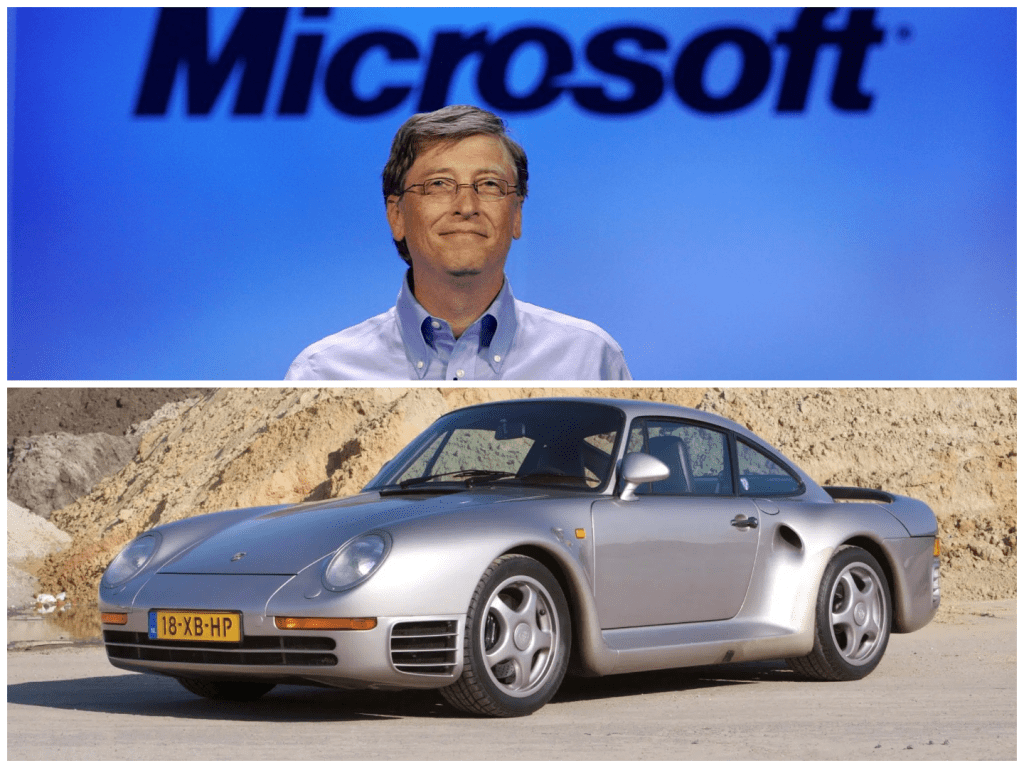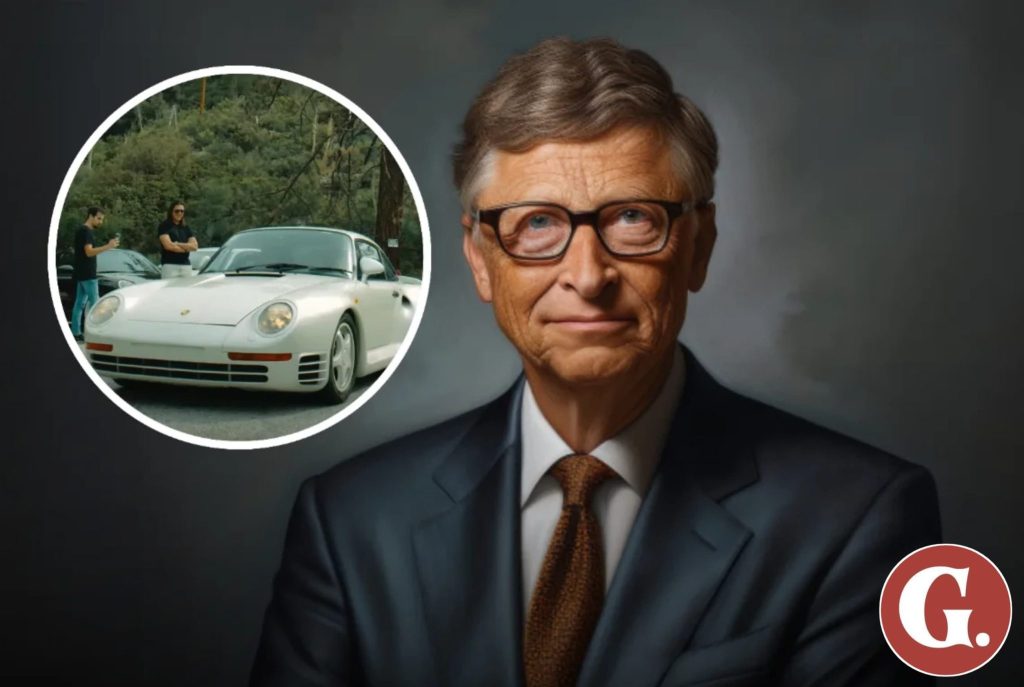Tech Titan Bill Gates Quietly Paid a $28 Daily Fee for 13 Years Just to Keep His Porsche 959—Here’s the Story Behind the Legal Breakthrough
I never thought a billionaire might spend more on storage fees than most people earn in a year—but then I read that Bill Gates quietly paid a $28 daily fine for 13 straight years just to keep a Porsche 959 in the United States. It’s a story about passion, persistence, and how one man’s obsession helped change import laws for car lovers everywhere.

In 1988, Bill Gates ordered what was then one of the most advanced cars ever produced: the Porsche 959 Komfort. At the time, only around 337 of these twin‑turbo, all‑wheel drive supercars ever existed. Featuring adjustable suspension and breakthrough electronics, it hit nearly 200 mph and could go from zero to 60 in under four seconds. A marvel on wheels.
But Gates faced a big problem the moment the car arrived at the Port of Seattle in the US. The Porsche 959 had never been crash‑tested for U.S. standards, and it didn’t meet the Environmental Protection Agency’s emissions rules. U.S. laws of the time forbade the registration or destruction of such non‑compliant imports—but customs didn’t reject it outright. Instead, it was impounded and fined $28 per day to remain stored inside a Foreign‑Trade Zone.
Rather than abandon the car, Gates opted to pay the fine, day in and day out. No press coverage. No headlines. Just persistence. For 13 years—4,745 days, to be exact—he paid more than $133,000 in fines and storage fees to hold on to this rare machine. That’s roughly the same amount he paid for the vehicle itself.

Still, Gates could’ve easily let it go. But his choice paid off in more ways than one. Behind the scenes, he and a small group of fellow enthusiasts—including Microsoft co‑founder Paul Allen—lobbied Congress for a legal solution. Their efforts helped birth the “Show or Display” rule, a 1999 amendment to Federal Motor Vehicle Safety Standards. The rule allows rare and historically significant cars to be legally imported if production runs were under 500 units and annual mileage stays below 2,500 miles.
Once the law passed, Gates’ Porsche 959 was finally released into his custody in 2001. He could register it legally and even drive it—within the new limited use rules. By then, his twelve-year ordeal had transformed legislation, not just for his own enjoyment but for collectors across America.
What makes this story so compelling isn’t the wealth behind it—it’s the kind of loyalty that still surprises. This was a man who could have bought dozens of cars, yet he held on to one despite absurd delays. More than that, he pushed for laws so rare machines—really just engineering milestones—could be preserved and shared. People weren’t reporting on his ordeal as it happened. Most didn’t notice until stories surfaced decades later.
Now, the “Show or Display” rule protects collector cars like the McLaren F1, Bugatti EB110, Jaguar XJ220, and other non-compliant supercars that would otherwise be banned. Gates’ persistence opened a legal door for rare technology to cross borders legally.

There’s something quietly romantic about the idea of someone writing a check every single day just to hold on to a dream. Gates’ payments totaled over $132,000. Adjusted for inflation, some sources suggest it would equate to nearly $300,000 today. Yet, he showed no sign of regret. In interviews, he later hinted that the 959 symbolized the future of software in cars, and he remained proud of what it represented.
It’s an unlikely path to policy change—few activists get bills passed in Congress. But here, personal enthusiasm met public benefit. Gates wanted his car free, and through persistence, the legal landscape shifted. Now collectors benefit, even if they don’t have billion‑dollar bank accounts.
Today, pristine Porsche 959s fetch well over a million dollars. The 959 in Gates’ own collection is speculation-worthy. It’s more than metal and tech—it’s a symbol of patience, passion, and rare vision. He didn’t just reclaim a car—he helped change how rare vehicles are valued and regulated in this country.
When people ask, “Why go through all that?” the answer is simple: some things mean more than money. For Gates, the 959 reflected a deep admiration for engineering and innovation. He didn’t just pay fines—he bought time, attention, and ultimately, change. So the next time someone objects to paying a small fine for something they really value, remember: even a billionaire once chose to pay $28 a day to keep a dream alive.


